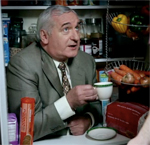More than a paper chase |
| Ruth Brady made the move from promoting mobile phones to head up marketing at News International a year ago. She explains her experiences, the similarities between the two tasks and the challenges facing press, not least from digital |
A week may be a long time in politics but a year in news has gone in a flash. After almost seven years with Vodafone, working across various roles, including consumer marketing communications, it was time for something completely different and so I joined News International as head of marketing for Ireland in January last year.
With press facing radical transformation, a challenge presented itself and I felt my experience in telcos could bring fresh thinking and innovation to newspaper marketing. My initial impression of the print industry was that it has been slow to adapt to the changing environment and to adopt new business models.
There has been an over-reliance on traditional media, particularly TV and radio, in relation to communications. Most press owners failed to exploit their most valuable and effective communications tools – their own titles – to cross promote and upsell.
While the newspaper industry is quick to react to breaking news stories, it has been slower to embrace new technologies. Press cannot afford to be intransigent or complacent. It needs to innovate, evolve and ultimately reinvent itself.
The print industry cannot keep doing things the way they've always been done. RTE, in trying to justify their dominance of the Irish online advertising market, criticised the press sector for failing to invest in developing their own digital platforms.
Digital is transforming press. Devices like the iPad are not just a trend, but a paradigm shift in communications that will see fundamental changes in how news is consumed. Rather than fighting a rear-guard action, we must find new ways to monetise audience and content across all platforms and deliver new media solutions for advertisers.
The current model of buying press advertising based on the JNRS is archaic and narrow. We need a more sophisticated multi-platform model based on active purchasing, influence and engagement. There will be room for fewer players in the market in the future. There has already been one national casualty in 2011 – the Irish Daily Star Sunday and there are likely to be more before the year is over.
Newspapers are about content. We should plan how we deliver this across all platforms, be it a website, social media, smartphone, tablet or print. The focus should be on promoting editorial content, rather than buying short-term sales spikes through CD or DVD giveaways. Newspapers should avoid the practice of bulking free or discounted copies. Every paper sold should be at full price and actively purchased.
 |
ENTERPRISE SUPPORTRuth Brady with Oliver Keenaghan, general manager, News International Newspapers in Ireland. The group is offering small businesses a chance to win €100,000 of free advertising in its three titles. The ‘Ignite Your Business Awards' are for small businesses, including franchises, with up to 50 staff. Aside from having to juggle three titles, one of the biggest challenges in my job is marketing an FMCG product that changes daily, while preserving a cohesive brand. |
Those responsible for marketing newspapers have less control over the product than other businesses. It increases the need to forge strong links between marketing and editorial and build trust. Press is a high engagement medium, so what surprised me most was the gap in data on our readers. While loyalty to specific titles is incredibly strong and readers have enduring bonds with their paper of choice, I noticed there was little dialogue with consumers and customer intelligence lacked real depth.
The reason for this is two-fold, firstly most of the market comprises single-copy sales. Secondly, there is no print subscription model for newspapers in Ireland, unlike the UK or US. Finding ways to address this has been a priority for me over the past year.
News International has programmes to capture data on our readers and encourage them to interact more regularly with our titles, as well as finding new ways to increase loyalty and retention. The Irish Sun offers a mobile rewards programme called SuperSavers, allowing readers to receive weekly offers and discounts by text.
The Sunday Club is an online loyalty and rewards programme for the Sunday Times, which was launched last month. Regular readers are urged to register on the site to get exclusive rewards across food and wine, events, culture, style and travel.
There are some surprising parallels between the telco and press sectors. Both can effect change in society, on our behaviours, in the case of mobile telephony and on our opinions and beliefs through newspapers. Mobile phones and newspapers have high engagement and strong emotional connections with their consumers.
 |
CLOSET POLITICIANFormer Fianna F Privacy Policy | Cookies Policy |









